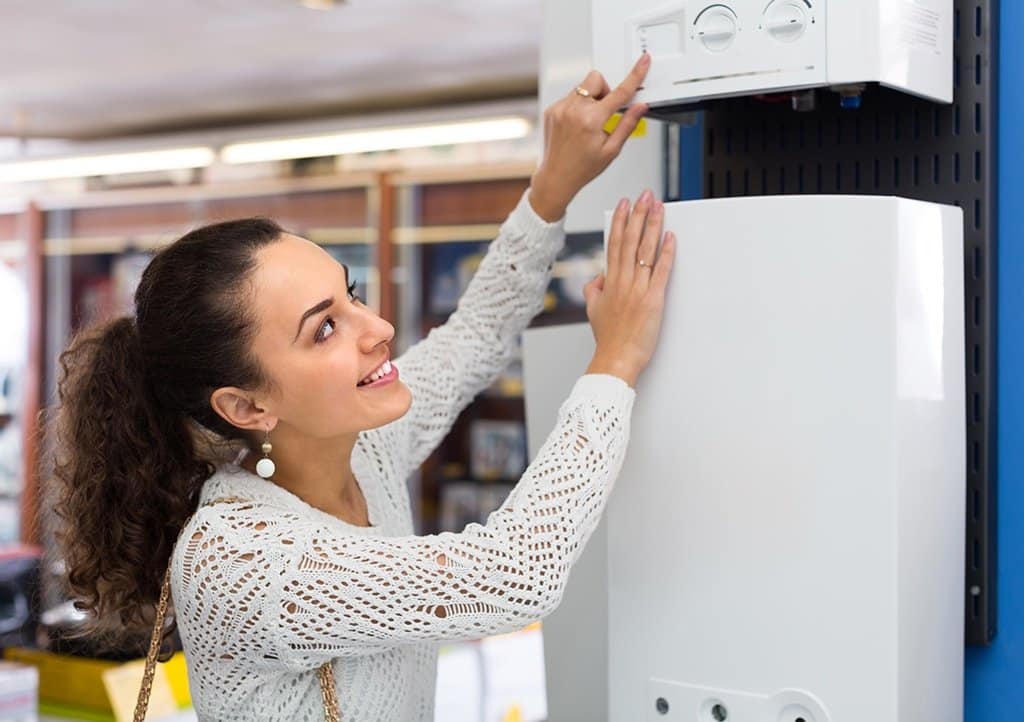
How to Select a Tankless Water Heater | Irving, TX
The demand of tankless water heaters from homeowners in the Irving, TX area has grown greatly. Slowly and gradually, they are replacing the traditional water heaters that come with a tank. These heaters are also called instantaneous or on-demand water heaters, beating conventional storage-type water heaters by a long shot due to their enhanced functionality.
One of the major reasons behind their effectiveness is their compact design and energy efficiency. They heat water and provide it on-demand. On the other hand, a conventional water heater relies on a tank for storing hot water and consumes energy to keep the water hot.
In simpler terms, this means that as long as you have a tankless water heater, you don’t have to limit your hot showers with the size of your tank. In tankless heaters, energy is utilized for only heating water rather than being used for both storage and heating purposes like the traditional heaters.
The Workings of Tankless Water Heaters
Tankless heaters run on a basic principle – When you open the tap for hot water, cold water is transferred to the tankless unit, where an electrical heating component (gas burner) heats the water. This hot water is then routed to the user.
While on-demand systems can provide a never-ending supply of hot water, they are constrained by the flow rate of the unit. Flow rate refers to the heating capacity of the tankless unit for the amount of water that is to be heated. A tankless heater with a slow flow rate struggles to keep up with household demands.
How to Pick Tankless Water Heaters
If you’re looking to purchase one, these following tips can help you make the right decision.
1. Considering Energy Efficiency
When shopping for your unit, consider the energy savings – a primary advantage of a tankless water heater. It’s also worth mentioning that the energy savings and efficiency of such a system plummet when the use of hot water is increased in the home. However, even in this case, your tankless heater can easily beat the conventional tank water heaters in terms of efficiency.
Energy Factor (EF) rating is used to measure the efficiency of a water heater’s unit. This rating is calculated according to the useful energy that the heater provides. It revolves around the quantities of hot water that is created by a single fuel unit. The bigger the EF rating, the more efficient is the water heater.
But the EF rating alone cannot be used for purchasing a heater when it comes to the operating expenses. Electric tankless heaters come with a higher rating than their gas counterparts. Since gas is cheaper than electricity, their units generate lower operating costs.
Usually, a temperature rise of 70 degrees in Fahrenheit is achievable when you use a gas-based tankless heater with a 5 GPM (gallons per minute) flow rate. On the other hand, an electric unit can provide 2 GPM for the same temperature.
2. Settling on the Warranty
Each manufacturer creates unique warranties. Some manufacturers need you to apply for the registration of your heater along with its professional installation to become eligible for warranty.
Assessing different warranties is crucial while shopping. When a manufacturer backs their product with reasonable warranty procedures and time frames, it serves as a strong sign that they are serious about their product.
Usually, the warranty is covered by the following ranges.
- • Heat Exchanger: 10-15 years
- • Parts: 2-5 years
- • Labor: 1 year
3. Choosing the Right Size for Your Requirements
The size of a unit is designed by calculating how much the temperature would rise to meet a specific flow rate. Therefore, consult with a professional who is experienced and can help you decide how much temperature increase and flow rate you might need for the demands of your home.
Generally, tankless water heaters can provide 3-5 GPM of hot water. Those with gas components tend to generate a higher flow rate.
When analyzing the size of a conventional water heater, experts use capacity or gallons per tank while tankless water heaters use flow or gallons per minute.
It is essential that you end up with the proper size of a unit because unlike conventional heaters, you don’t have the backup option of a storage tank for addressing your shortages in peak hours.
4. Selecting the Fuel Type
The fuel type that you would use for your heater is a major factor as it affects the energy efficiency and size of your unit. Going back and forth between fuel sources is costly; therefore, it’s wise to pay extra caution during this step.
Usually, electricity, propane, and natural gas is used for fuel. Generally, homeowners pick the fuel that has better availability in their neighborhood. If you have the luxury to choose, compare the expenses that come with each fuel with the efficiency of the unit. In the end, you can choose the one that best meets your needs.
Bear in mind that gas tankless water heaters are costlier than electric ones. However, they also provide improved performance over electric heaters.
Final Thoughts
Investing in tankless water heaters, is one of the smartest home investments that you can make. Even if you plan to sell your home, it can boost your property value.
Choosing the right one for your home can be tricky, therefore, you need the help of the best plumbing experts in the Irving, TX area, Bluefrog Plumbing + Drain of North Dallas. We will measure the usage of hot water in your home, to find the most suitable unit for you. Don’t run out of your hot water supply and save money with the right unit for your home. Call us for all of your plumbing needs at 469-327-8784.



















